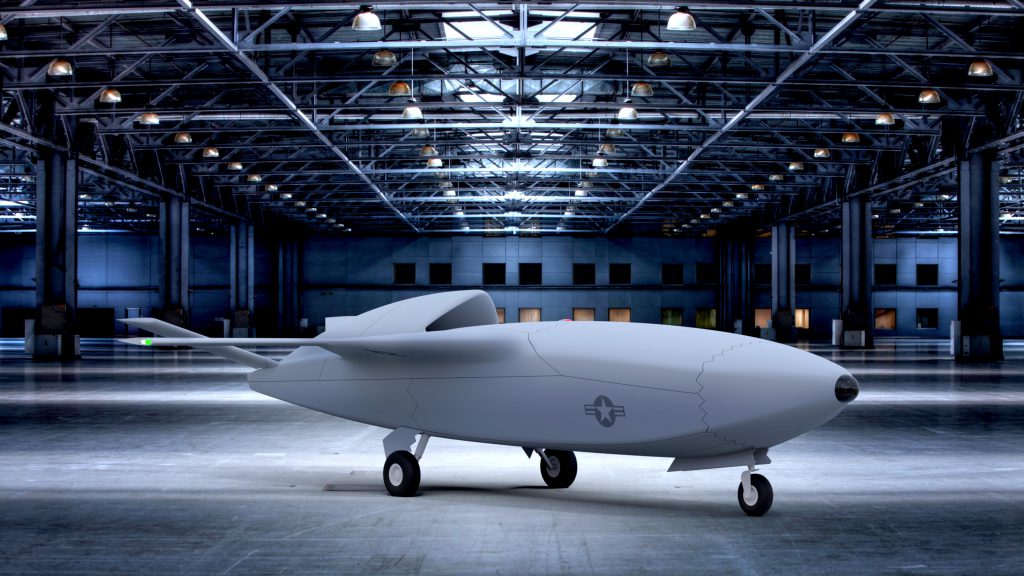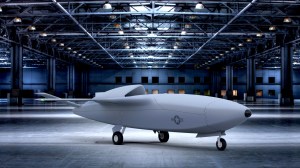Air Force selects pool for $400M ‘Skyborg’ contract for autonomous drone systems

The Air Force’s Skyborg Vanguard Program for teaming autonomous drones with human-controlled planes has chosen the pool of contractors that will compete for task orders on a $400 million indefinite delivery, indefinite quantity (IDIQ) contract.
Boeing, General Atomics Aeronautical Systems, Kratos Defense and Northrop Grumman all will be able to vie for work on the highly networked technology.
The program’s focus is on “attributable” aircraft — meaning that the autonomous drones should be relatively low-cost in a way that makes them expendable in a high-risk operation. The program is one of the Air Force’s most “far reaching” technology programs that aims to leverage artificial intelligence to support the autonomous network of drones and link to other emerging technology programs like the Advanced Battle Management System.
“We are at the very early stages,” Brig. Gen. Heather Pringle, commander the Air Force Research Lab, said during a virtual press conference Tuesday. “Ultimately, we are progressively adding to the autonomy” of the systems.
The Air Force has partnered Pringle’s research lab with other Program Executive Offices in the development of the program. The goal is to have an “open architecture” partnership across the department to link the Skyborg program with other emerging technologies that use autonomy and networks in battle.
Cybersecurity at the core
The program will have cybersecurity at the core of its development, Pringle and Brig. Gen. Dale White, who leads the Air Force’s program office for fighters and advanced aircraft both said. The generals said that “red teaming” and aggressive testing will be a critical part of experimentation on prototypes and eventual products that come from the IDIQ contract.
“You have to red team it, you have to challenge it, you have to try to break it and that is part of testing and that is a part of experimentation,” Pringle said.
The Air Force will be using offices across the DOD to work on hacking the system, White added. The Air Force also plans to start the authority to operate (ATO) process for the software early in experimentation in order to meet development timelines, White said.
“The process by which we do the ATO’s has not changed, the but the process in this program will be to bring early input,” he said.
The at times months-long process for earning an ATO has foiled software acquisition and updates in past programs. The companies selected will be expected to follow industry best practices for cybersecurity in their work with the military, the generals added.





